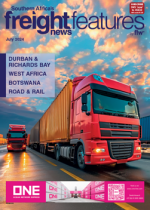Increased transparency between customs authorities and the private sector would go a long way in improving trade and reducing delays and costs in Botswana.According to Lucas Barreto, chairman of the Freight & Customs Clearing Association of Botswana (FCCA AB), implementing advanced customs management systems and automating data exchanges have reduced costs and transit times, but challenges still exist when moving cargo.“There have been a lot of changes to the customs systems, and generally, when these changes are made, there is not a lot of discussion with the private sector, even though the actions directly impact our operations. There is still a lack of communication, particularly around pertinent information that impacts trade, cross-border transportation, and even clearing formalities.”He said when changes were effected without clear instruction and communication to the private sector, cargo was often held up at border posts due to non-compliance. “To a certain extent, this does become a non-tariff trade barrier that ultimately only drives up costs.”Barretto said the FCCA AB was continuing to work closely with government authorities to reduce these incidents and ensure there was as little delay as possible in the freight movement in and out of Botswana.“Of course, an ongoing issue in the region is the lack of integration between systems, which brings its fair share of challenges. South Africa’s EDI is a very different system from Botswana’s VRS. This means that the two systems don’t always talk to each other, and considering that some 90% of all goods moving into Botswana are from South Africa, one would hope that integration was at the top of the agenda .”He said more often than not, clearing agents were overwhelmed with large amounts of paperwork.“Coupled with an ongoing skills shortage, we are not doing our economies any favours,” said Barreto. “There is talk about implementing a system interface, but this process is slow, and for the most part, the private sector remains in the dark about where the process is at present.”He said it was much the same with border posts with other countries. “There is still a lot of manual paperwork at border posts, which challenges authentication and security.”More harmonisation and integration in the region was critical, he added. “We also have dual processes on both sides of border posts that are slow and cumbersome, delaying trade even further.”He said that with volumes increasing, it was important for a landlocked country like Botswana to not only integrate its systems more with its neighbours but also ensure it communicated with forwarders regularly to ensure they remained abreast of changes.

